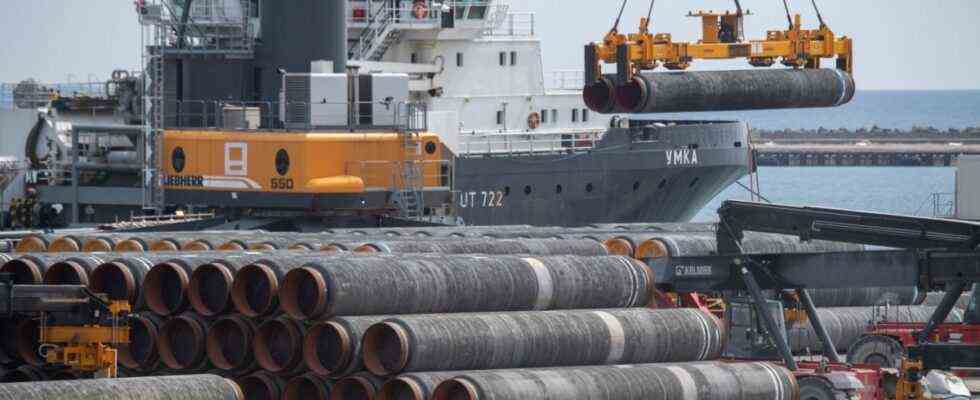After years of dispute, the US and Germany have achieved a breakthrough in the conflict over the German-Russian Nord Stream 2 pipeline. Top State Department diplomat Victoria Nuland said at a congressional hearing in Washington on Wednesday that the deal would be formally unveiled later that day.
Nuland said that in the agreement Germany committed itself to measures “should Russia try to use energy as a weapon or to commit further aggressive acts against Ukraine”. That includes possible sanctions. Support for an extension of the gas transit agreement through Ukraine, which expires in 2024, for a further ten years has also been agreed. Work will also be done to reduce Ukraine’s dependence on Russian gas and transit revenues.
The almost completed pipeline is to bring natural gas from Russia via the Baltic Sea directly to Germany – bypassing the traditional transit country of Ukraine. The agreement should therefore primarily be about permanent protection and the economic future of Ukraine.
US President Joe Biden and Chancellor Angela Merkel (CDU) summoned a new start in German-American relations in Washington last Thursday, after difficult years under Biden’s predecessor Donald Trump.
Biden then said that he had again expressed his concerns about the pipeline to Merkel. Russia should not use this to “blackmail Ukraine in any way”. Merkel said that Nord Stream 2 is an additional project and not an alternative to gas transit through Ukraine: “Our understanding was and is and will remain that Ukraine remains a transit country for natural gas.” Merkel made it clear that “active action” will be taken if Russia fails to redeem Ukraine’s right to gas transit.
On Wednesday, the Chancellor spoke with Russian President Vladimir Putin about Nord Stream 2. This was announced by a government spokeswoman in Berlin that evening. On the one hand, the phone call was about the implementation of the Minsk agreements for a peaceful solution to the conflict in eastern Ukraine. “Energy issues such as gas transit through Ukraine and the Nord Stream 2 pipeline were also discussed,” she added.
Agreement is likely to meet opposition in Congress
In the US there has been cross-party resistance to Nord Stream 2 for years. The agreement is therefore likely to meet with opposition in Congress. There, many Republicans reject the project and demand sanctions, as do some of Biden’s Democrats. Critics see the pipeline as a geopolitical project by Russia that threatens Europe’s energy security. They also complain that the pipeline could harm Ukraine. Kiev is dependent on billions in revenue from Russian gas transit. Proponents of the pipeline, on the other hand, accuse the USA of only wanting to sell their own, more expensive gas in Europe.
Biden had shown goodwill at Nord Stream 2 since taking office as part of a restart in relations with Germany. In May, his government waived sanctions against the Swiss operating company and its German managing directors – expressly out of consideration for relations with Germany, as stated in a report by the US State Department.
Lambsdorff: “Adhesive plaster for a broken leg”
The deputy chairman of the FDP parliamentary group, Alexander Graf Lambsdorff, said on Wednesday after media reports about an imminent agreement between Germany and the USA on Nord Stream 2 that this would act like a “sticking plaster for a broken leg”. There is still a risk that the pipeline will become a foreign policy weapon in the hands of Moscow. “For years, the German government negligently neglected the diplomatic integration of the project with our partners in Europe and America. That is why Germany, like the USA, must now seek direct talks with Poland and Ukraine,” he demanded.
At the Greens, the deputy chairman of the parliamentary group, Oliver Krischer, and the spokesman for Eastern European policy, Manuel Sarrazin, said: “The agreement on Nord Stream 2 is a major setback for climate protection.” Above all, the federal government sealed the extension of the lifetime of fossil fuel infrastructure, they said. The government preached climate protection, but practiced the opposite, it said.

